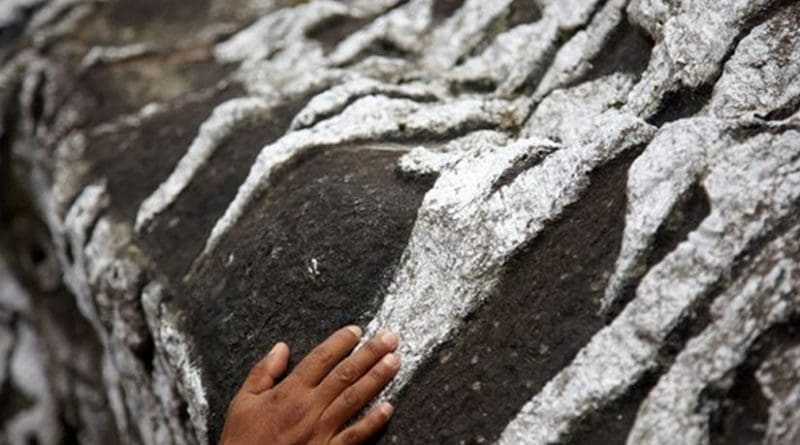Nepal: The Guthi Bill And Lessons Learnt (Brute Majority Is Not Enough) – OpEd
By SAAG
By Dr. S. Chandrasekharan
The Controversial Guthi Bill, its abrupt withdrawal from the Parliament and subsequent massive but disciplined demonstration against the Government’s attempt to nationalize Guthis should be a good lesson for Oli Government.
First, the Government thought that with its brute majority it could get through the bill without considering or even attempting to explain to the people the benefits. This was a mistake. The second mistake was to treat it as law and order problem in the early stages. In the end, it brought, the power of the common man to the fore as against the might of the Government. What is left unsaid was tht the powerful Newar community cannot be trifled with and particularly with their centuries old traditions and practices.
Guthis are socio economic institutions that have been present since the fifth century. These institutions that are mainly held as trusts have certain obligations like conducting the many festivals of the valley with the proceeds of the endowed land and donations from the public. Of late the income from the endowed lands has not been sufficient but these festivals like the many “Rath yatras” one sees in Kathmandu were the result of generous donations of well to do people. There was active participation of the public in all these festivities.
It was in 1964 that the Government organized the Guthi lands into one of a Corporation and it could be said as the first step towards the nationalization of Guthi properties private and public. At that point of time, there was hardly any opposition as the country was led by an oppressive regime and people were afraid to protest. But times have changed, and the current Government had not factored this into account. Or was it Maoist idea to get rid of the old culture and practices just as Mao had done during the cultural revolution in China!
It was in November last year that the Finance Minister gave a hint of the proposal of the government while speaking on the 55th anniversary of Guthi Sansthan. He said that there was a need to develop the Sansthan into a modern Social Corporation.
In April 29, the Minister of Land Management Cooperatives and Poverty alleviation tabled a bill in the Upper House that would consolidate all acts and amendments relating to the Guthis. The objective of the bill was to nationalize all Guthis public and private and regulate all religious sites. It was not explained to the public as to why this was being done. If there were allegations about misuse of Guthi funds then the Government should have come out with details of such allegations. It should also have been explained to the public how the “take over” by the government would help in getting more funds and conducting the festivals in a more organized and in an efficient manner. This was not done.
There were massive but peaceful protests in Kathmandu near Mathighar. The people saw the bill as an assault on their historical identity and culture. The police responded with tear gas and water cannon on the peaceful protestors on 10th of June. The people were really enraged at the cultural insensitivity and arrogance of the government.
Prime Minister Oli was away in Europe for a week and as soon as he returned, he was briefed about the impending massive demonstration against the bill on 19th. It was withdrawn on the 18th June.
Yet the demonstration near Mathighar took place on the next day. Observers say that the protests were the biggest one- the like of which was never seen since the days of Jana Andolan II. It was a sea of people in Mathighar. The protestors alleged that the bill was an attempt by the State to “wipe out centuries old customs and traditions of the country”. Some said that it was “cultural insensitivity and arrogance”.
The Protests were very peaceful and had some unique characteristics.
Firstly, there was a general bon homie between the protestors and the security forces. Even water was supplied to the security men. The protestors even cleaned up the place soon after the demonstration. And it was most peaceful.
Many Observers felt that these kinds of demonstrations may be the shape of things to come in future.
This may not be so as the demonstration was more in the nature of a “victory rally” when the bill had been withdrawn the previous day on the orders of the Prime Minister.
But what is important is that the Government had not realized that it cannot run the government as it wants just because it has an overwhelming majority and that it should be sensitive to the feelings and traditions of the people. Probably it was the Maoist wing of the Ruling Party that wanted to nationalize a lucrative field like Guthi Sansthan. But they had not taken into account the possible opposition from the strong and powerful original community of the valley!


Spell it Maitighar not Mathighar, a small mistake might take your credibility.